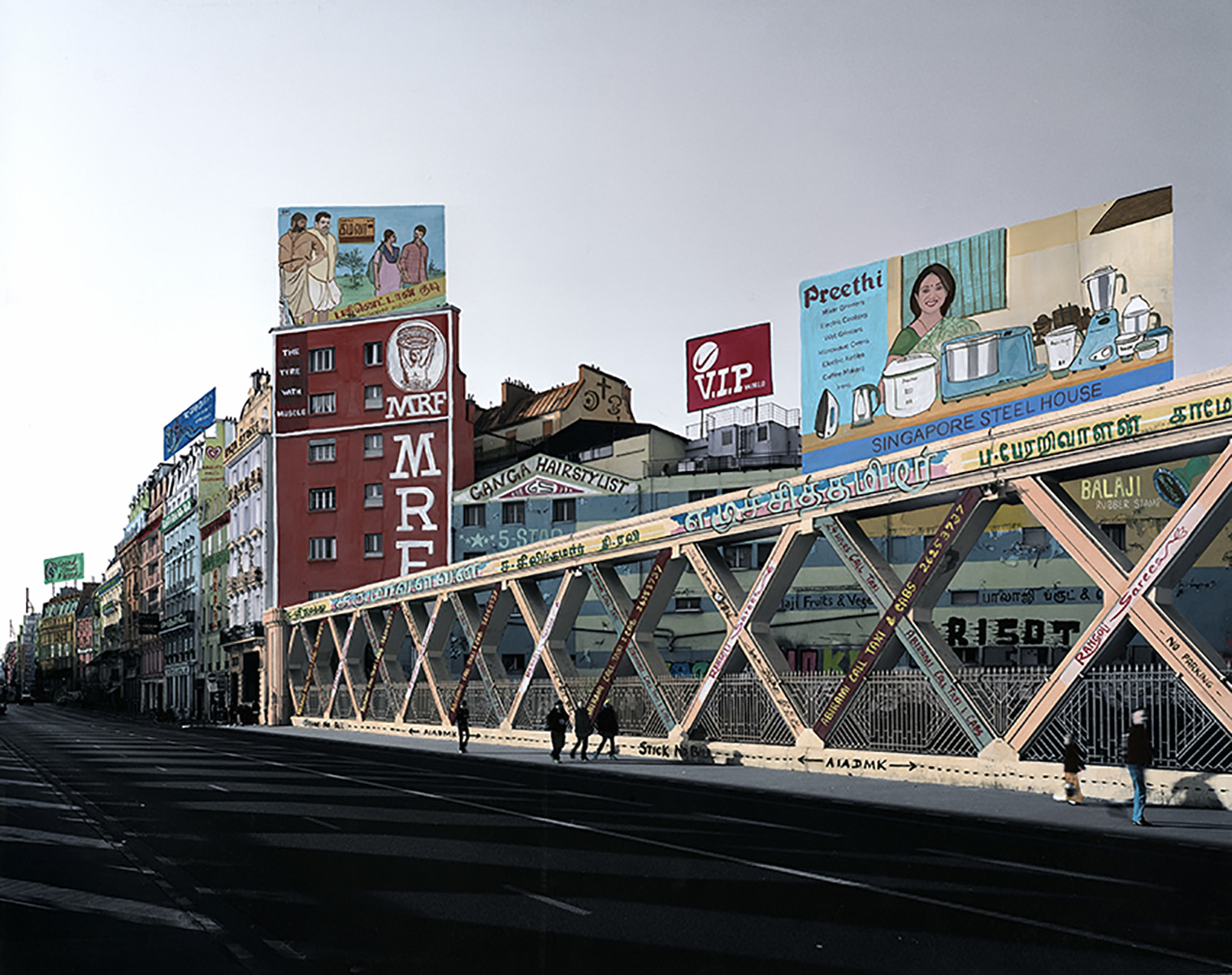For Fred Delangle life is a game, but he writes his own rules. Born in 1965, he grew up around Paris and graduated from Paris 8 University with a master in photography. From his first steps into photography, he developed a passion for urbanism and landscapes. In the 1990s, he regularly aimed his camera at the peripheral ring road around Paris in order to enjoy this aerial view of the suburbs. Naturally, he works on commissions in architecture and urban landscape from architects, but also on institutional campaigns and commercials. In 2001, he made his first trip to India, which marked a turning point in his work. He began a project that lasted almost five years on Ahmedabad, at night, to bear witness to the remains of this city that was once one of the richest in India. What characterizes Delangle, even before his photography work, is his childlike spirit, his jubilant quest for play. As such, he has played with Indian codes, of the supposed difficulty for Westerners to understand this culture, in order to better apprehend it and travel around the country for more than 15 years in multiple and regular trips that he calls Indian winters. He also developed his own visual language, imposing rules and limits, much like Oulipo, whose influence he willingly acknowledges through play and protocols. He plays with a scary situation by immersing himself in the wild alone at night in Nyctalope. He plays Indians-colonize-Paris in his Paris-Delhi series. He plays the game of love in Coitus. He plays at building bridges betwen the old continent and the new world by creating a Third Territory. He makes Indian shopkeepers play their own roles in Microshop. He plays at reorganizing the circulation of people and vehicles in Harmonious Chaos. He only regrets one thing about photography: the often solitary work, precisely without playmates. It was certainly one of his motives in creating the photographic mission France(s) territoire liquide uniting 42 other photographers. They worked together in the form of a self-produced commission, where the collective could also define its own rules of the game.
was successfully added to your cart.

